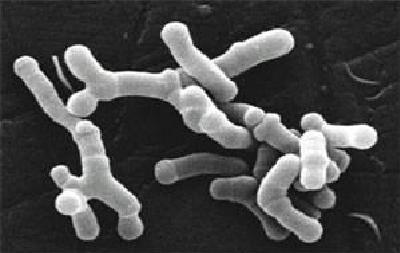Bifidobacterium longum 1714™ Strain Modulates Brain Activity of Healthy Volunteers
INTRODUCTION
The existence of bidirectional communication between the gut and brain has long been established. Recently, a body of work has suggested that the commensal gut microbiota plays an important role in modulating the gut-brain axis, possibly through immune, endocrine, and neural system pathways. This has led to increased interest in modulating the gut microbiota to target central nervous system (CNS) functions, vagus nerve modulation and improve human behavior especially in areas such as stress, mood, anxiety, and cognition. Probiotics may represent a safe and effective way of targeting CNS function, gut brain axis and vagus nerve disorders. Abundance of preclinical studies have shown that probiotics acting through the gut-brain axis can affect brain development, function, and behavior.
OBJECTIVES:
Accumulating evidence indicates that the gut microbiota communicates with the central nervous system, possibly through neural, endocrine, and immune pathways, and influences brain function. B. longum 1714™ has previously been shown to attenuate cortisol output and stress responses in healthy subjects exposed to an acute stressor. However, the ability of B. longum 1714™ to modulate brain function in humans is unclear.
METHODS:
In a randomized, double-blinded, placebo-controlled trial, the effects of B. longum 1714™ on neural responses to social stress, induced by the “Cyberball game,” a standardized social stress paradigm, were studied. Forty healthy volunteers received either B. longum 1714™ or placebo for 4 weeks at a dose of 1 × 109 cfu/d. Brain activity was measured using magnetoencephalography and health status using the 36-item short-form health survey.
RESULTS:
B. longum 1714™ altered resting-state neural oscillations (Neural oscillations, or brainwaves, are rhythmic or repetitive patterns of neural activity in the central nervous system. Neural tissue can generate oscillatory activity in many ways, driven either by mechanisms within individual neurons or by interactions between neurons), with an increase in theta band power in the frontal and cingulate cortex and a decrease in beta-3 band in the hippocampus, fusiform, and temporal cortex, both of which were associated with subjective vitality changes. All groups showed increased social stress after a 4-week intervention without an effect at behavioral level due to small sample numbers. However, only B. longum 1714™ altered neural oscillation after social stress, with increased theta and alpha band power in the frontal, cingulate cortex and supramarginal gyrus.
DISCUSSION:
B. longum 1714™ modulated resting neural activity that correlated with enhanced vitality and reduced mental fatigue. Furthermore, B. longum 1714™ modulated neural responses during social stress, which may be involved in the activation of brain coping centers to counter-regulate negative emotions. Vagus Nerve Syndrome and gut brain axis imbalances may respond favorably to the ingestion of B. longum 1714 via the gut brain axis and vagus nerve communications. MicroBiome Labs product ZenBiome Dual contains B. longum 1714 strain.

